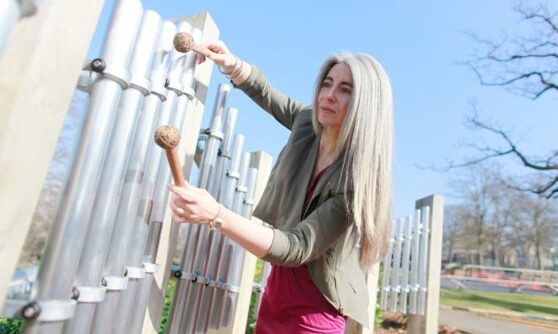
Do we take some people for granted? Do we ever downgrade so-and-so as part of the furniture and conclude that their achievements speak for themselves?
The questions arose after talking to Dame Evelyn Glennie, a woman whose career is packed with so many different accomplishments and accolades – and who can travel the world and people know her from myriad different settings, whether it’s the 2012 London Olympics, her championing of the Sistema initiative or her Grammy Award victories – that it’s easy to forget where the story began back in the mid-1960s.
Or indeed, where the journey has led her and continues to lead her, while providing evidence of the power of listening, heeding the perspectives of others and creating work in collaboration with fellow humans of all ages and backgrounds on a truly global scale.
It’s not simply that she is unique, although that is undeniable. If Sherlock Holmes – as created by Sir Arthur Conan Doyle – revelled in his role as the world’s original consulting detective, then Dame Evelyn was the first person in musical history to sustain a full-time career as a solo percussionist, excelling with the greatest orchestras, conductors and artists of the age – and all of it has unfolded even as she has been an ambassador, a patron, a charity fundraiser par excellence and a force of nature.
She could ‘feel the sound’
It all started while she was growing up on a farm in the north-east of Scotland, where she became drawn to percussion even as her hearing declined because she could “feel the sound”. At the age of 16, she gained a place at The Royal Academy of Music in London where she graduated with an Honours degree three years later. She was profoundly deaf and yet has carried on undaunted throughout her fantastic voyage.
Four decades later, she is still making waves, whether as the chancellor of Robert Gordon University or continuing as an ambassador for Sistema, which has brought joy to thousands of underprivileged youngsters in places such as Torry in Aberdeen and Raploch in Stirling, even as she progresses with The Evelyn Glennie Foundation.
The latter is very dear to her heart and is being launched “to enable people from all backgrounds to form listening bridges, not only with our ears but our very presence, from the beginning of our lives to the end. Now more than ever we need everyone to listen. Imagine how the act of listening would impact the world we inhabit”.
Covid hasn’t diminished Dame Evelyn Glennie’s love of live performance
And, of course, she is performing wherever and whenever she can. Covid might have transformed the whole arts landscape, but it hasn’t diminished Dame Evelyn’s effervescence, nor her belief that nothing transcends the frisson of walking into a concert hall, a festival venue or a theatre and being part of a communal experience.
As she said: “There are so many issues going on at the moment, whether it’s the cost of living, energy bills, transport, getting from A to B and juggling your time, and there’s also the option that folk can engage with performances online and I think that has had a huge impact on who actually walks through the doors of a performing space.
“Covid has pushed what it is possible to do online and has opened up so many possibilities for people to sit in their living room and watch something at their leisure.
“But ultimately, what I see is that, for the folk who do attend performances, they very openly express the difference between watching something on a computer as opposed to being there in person. And I think, as a performer, the two ways of performing, either digitally or in a live space, are two completely different art forms.
“I feel that performers need an audience and an audience need performers and there is nothing quite like the experience of being there. But equally, I think it opens up the opportunity for promoters to ask themselves what are they actually providing for their audience. It isn’t just what’s happening on the stage, it’s what happens as soon as the folk walk through the doors of a venue.
Audiences need to be made welcome
“What is there to excite them, to make them feel welcome, in the warm-up before they get into the concert space? That needs to be carefully considered. Because a lot of things have had to change since the explosion in digital performances.
“You can’t just book a big-name soloist or a big-name pop star or conductor or orchestra and expect to fill a hall any more. It’s not that straightforward.”
Dame Evelyn is a committed advocate for encouraging youngsters to develop an interest in the arts, whether it be in pop, rock or as part of an orchestra, and has argued passionately about the benefits of nurturing schemes such as Sistema. As far as she is concerned, there’s no place for elitism or exclusivity and she has railed against such short-term policies as youth festivals being shut down for financial reasons.
She said: “Whatever we invest now for our young folk will have a positive impact in the future. There’s no question in my mind that it is a good thing. It needs to start right from the beginning, so the work Sistema is doing is absolutely terrific.
Aberdeen in ‘prime position to push boundaries’
“Any creative activity should be welcomed and I know the difference it made to me. That’s why the Saturday morning music school was unbelievable when I was young, along with things like the Aberdeen International Youth Festival, which saw young folk from all over the world coming together, performing together, learning about different cultures and languages… crumbs, it’s difficult to put into words, it’s really important.
“We do have an opportunity at the moment to talk about our performance spaces across the north-east and think outside the box. What sort of outdoor spaces are available? What sort of derelict buildings are there? How can these be used in a creative way?
“I know it’s always easier said than done, but I genuinely believe there is such a richness in and around Aberdeen, and I know that this is a city which has always relished its history, its dialect, its music, its celebrated youth, its cutting-edge technology, its [numerous pioneering breakthroughs] in health, and so on.
“So, as we move into this new phase of thinking about climate change and how we live [in the post-Covid era], I feel that Aberdeen is in a prime position to be one of the main places to push the boundaries.”
In the months ahead, Dame Evelyn will be performing in New York, recording a CD, returning to Europe and attending a hectic schedule of events, while she increases her involvement with her eponymous foundation.
She never stops, but there again, this is one exceptional individual, who has dedicated herself to helping others, whether through her association with charities or by supporting access to music and education for those from disadvantaged backgrounds.
Perhaps, we should all bang the drum a little louder about her.
Further information about The Evelyn Glennie Foundation can be found here: www.evelyn.co.uk/the-evelyn-glennie-foundation
FIVE QUESTIONS FOR DAME EVELYN GLENNIE
- What book are you reading?
Listening: Hearing the Heart by Robert Daniels. - Who’s your hero/heroine?
My group of volunteers who do such a wonderful job collating The Evelyn Glennie Collection. I can’t express my admiration for the power of volunteering. - Do you speak a foreign language?
No, other than A-level French – and Doric, of course! - What’s your favourite band or music?
Whatever is in front of me at any given moment. It’s impossible to choose one. - Most treasured possession?
My waterphone [also known as an ocean harp].
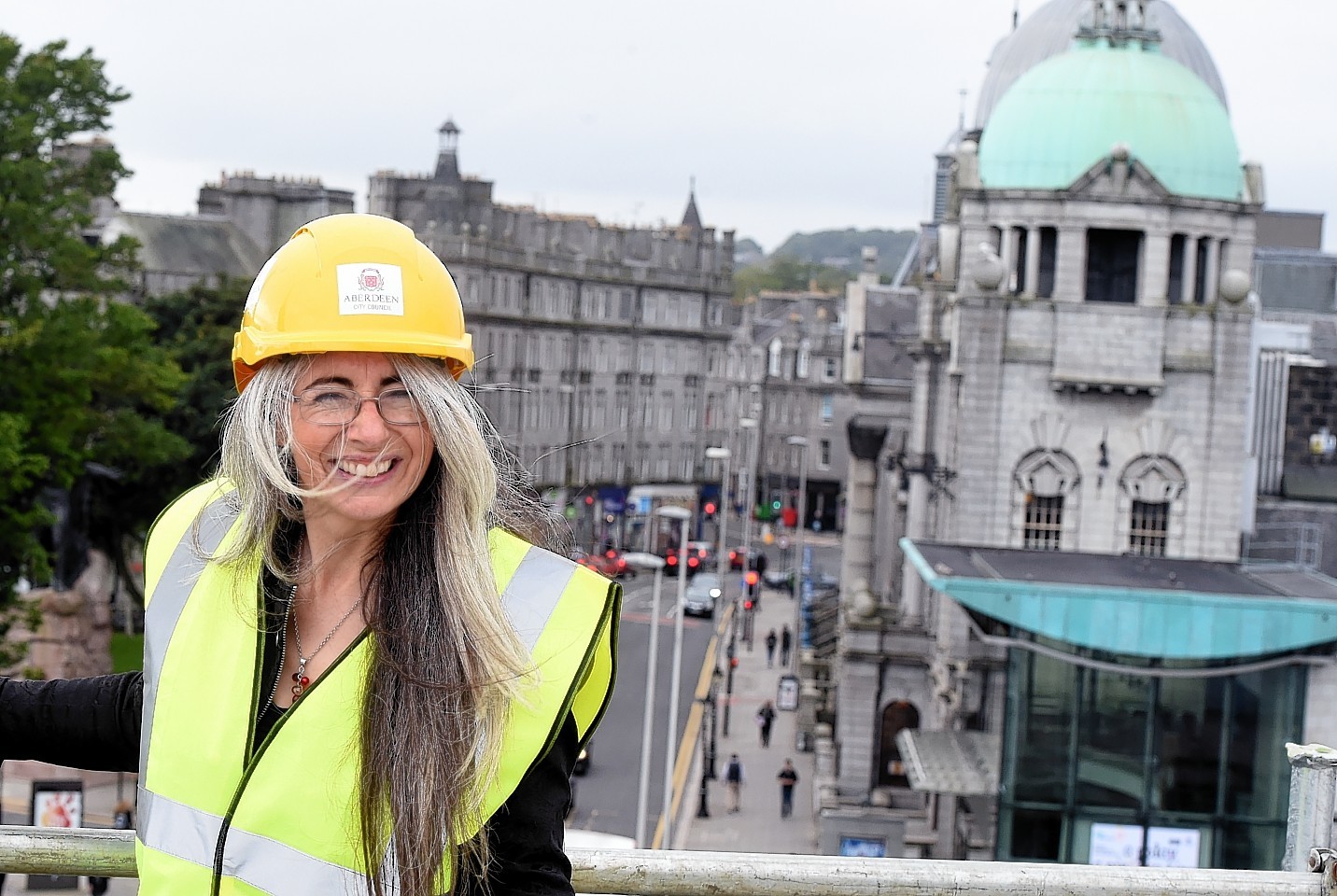

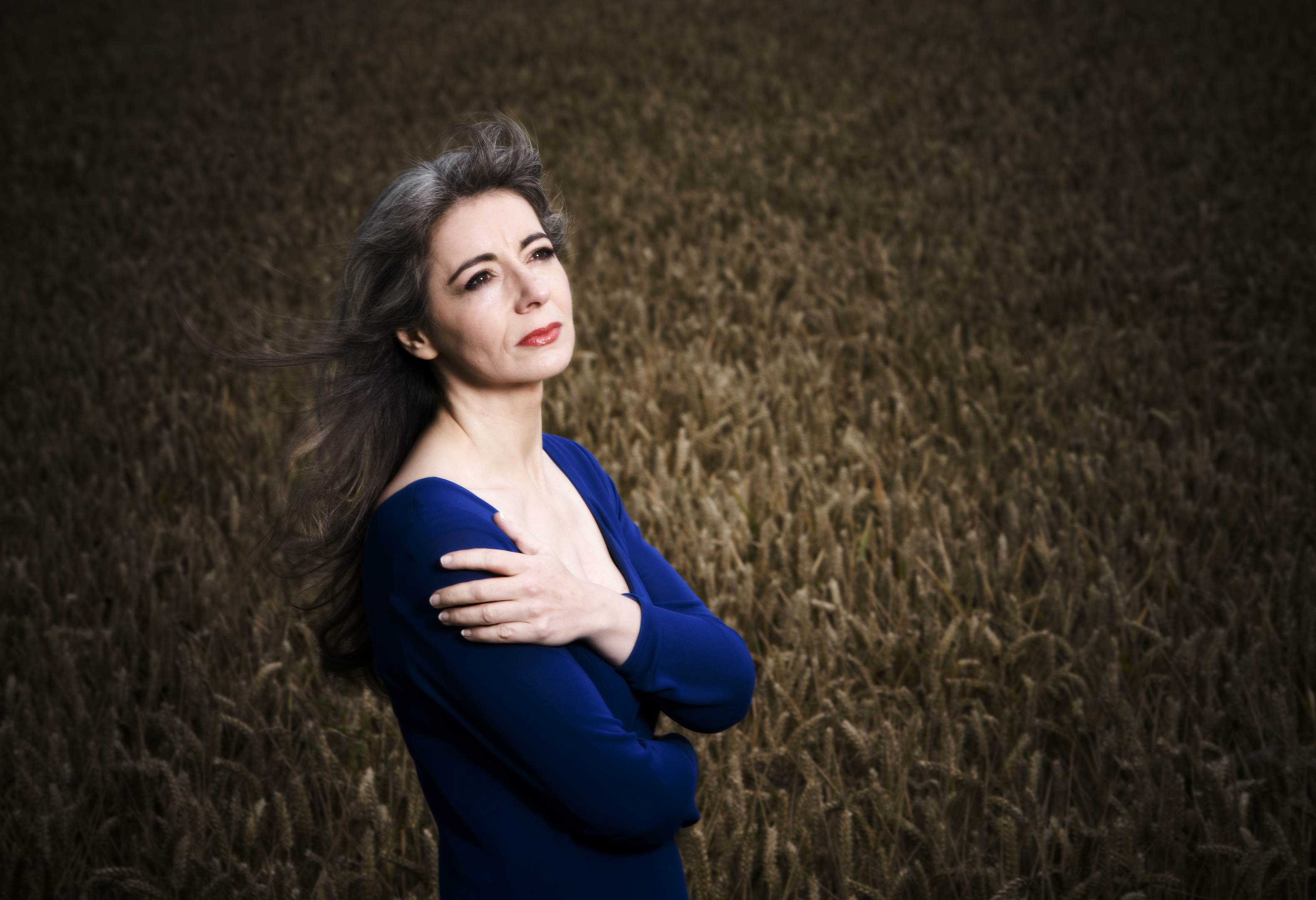
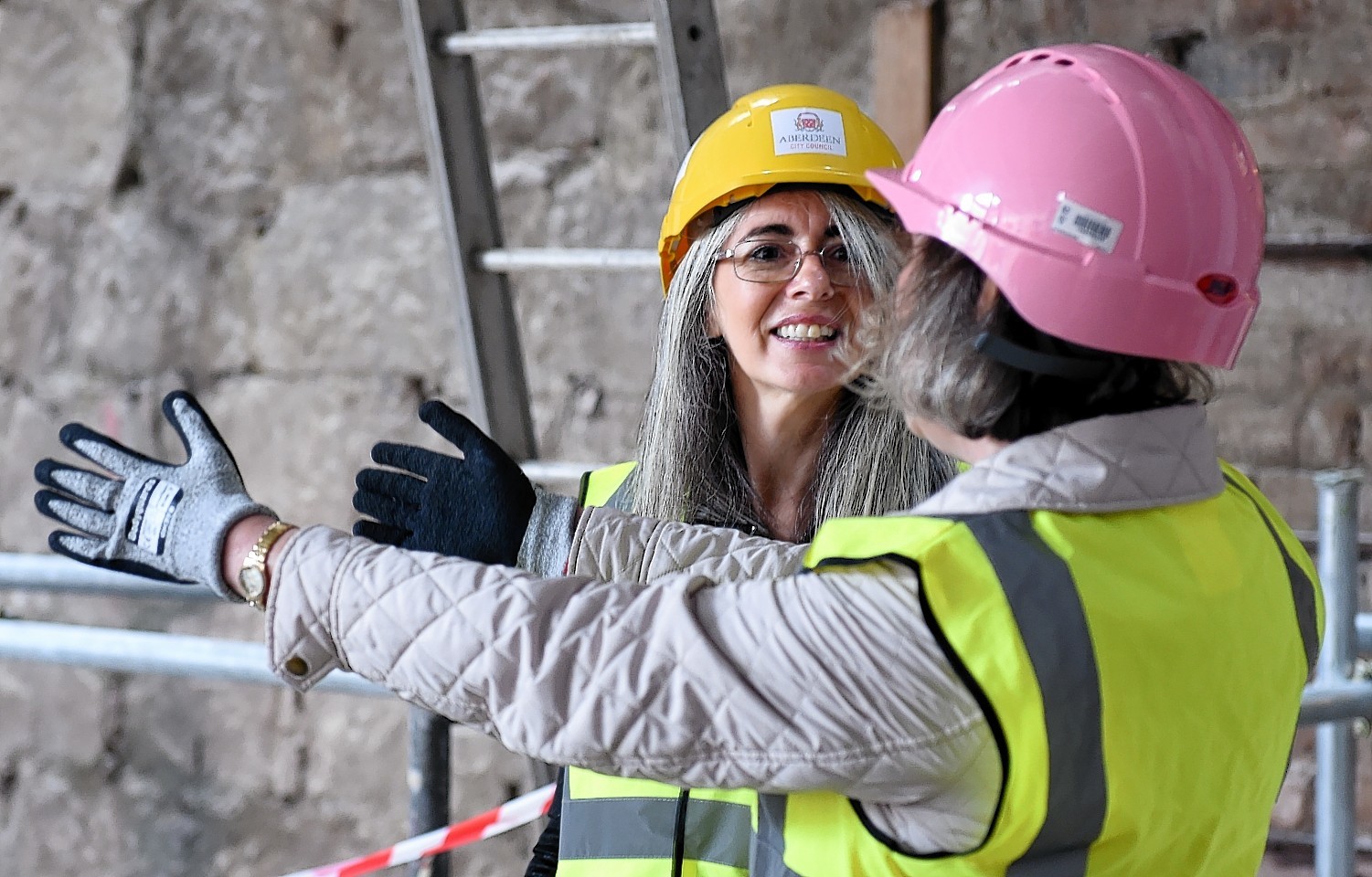
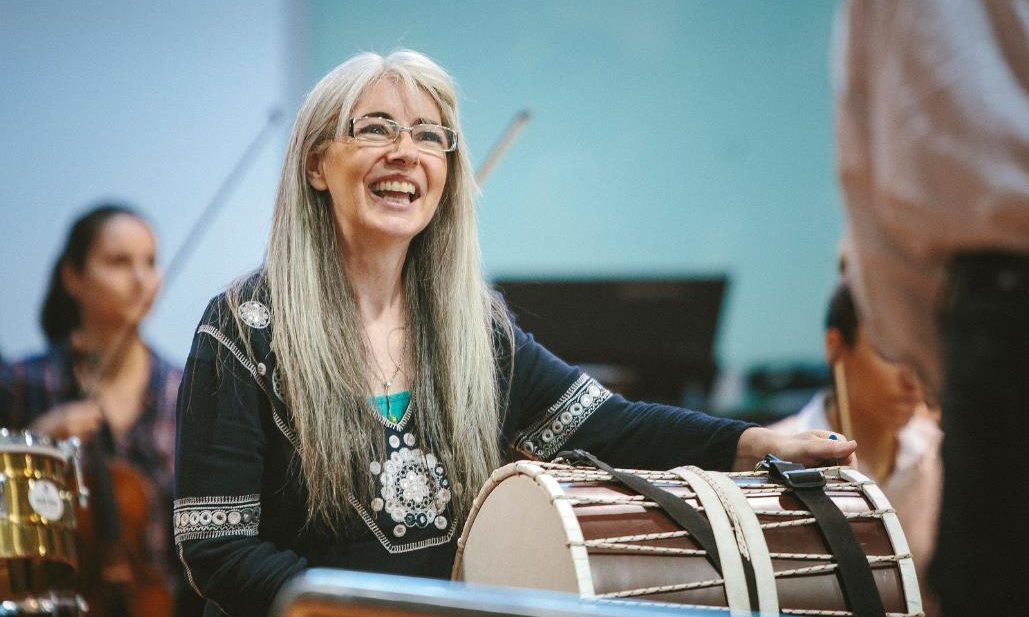
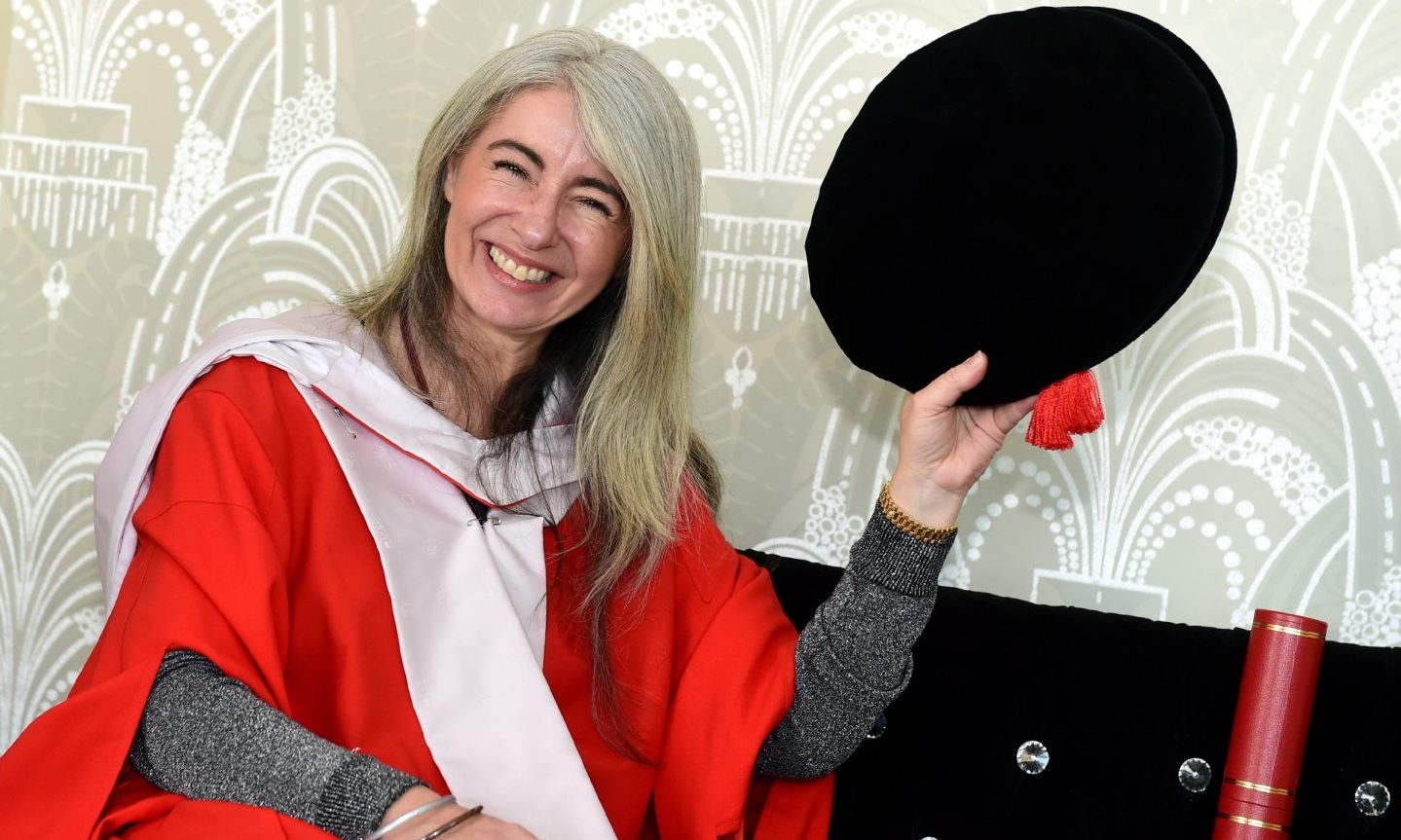
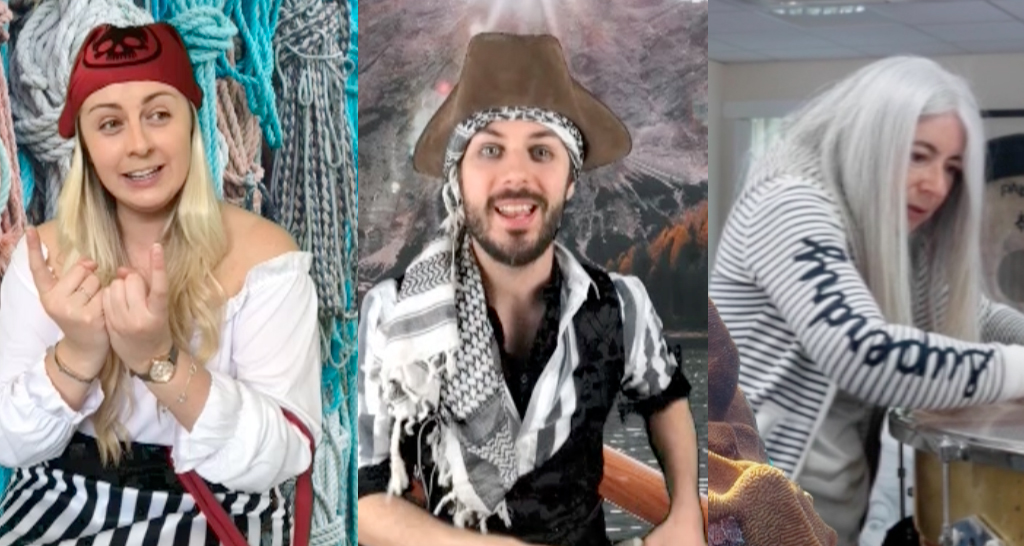
Conversation